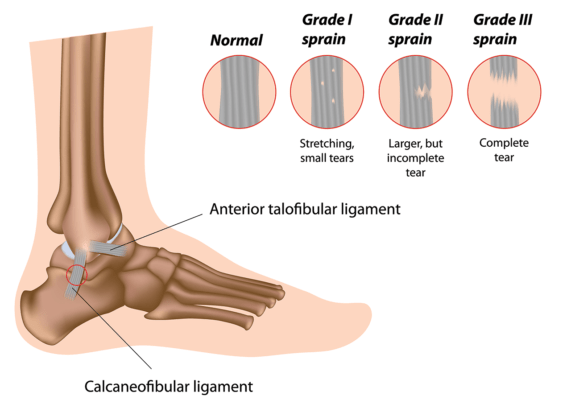Ankle Sprain Long Term Effects: If You’ve Had Ankle Sprains Be Careful-Arthritis is On the Way!

Alila Medical Media/Shutterstock
Everyone twists an ankle at some point, but have you ever wondered whether there are ankle sprain long term effects? When I was a new doctor, I turned my ankle really badly while running. I literally limped a mile home that day and my ankle was never quite the same. For example, even lifting or carrying heavy things would mean I would limp on my ankle for days.
I knew there were long term effects from an ankle sprain, so I sought treatment. Did I get surgery? Are you kidding? I used regenerative medicine injections into the ligaments. With a few injection treatments I could carry heavy things with only mild limping. After another few treatments I had no issues. Now a study was just published that explains my difficulties. The researchers used sophisticated motion analysis to look at patients who had suspected mechanical instability of the ankle. They saw evidence that excessive motion was likely slowly frying their ankle joint. This topic of instability and arthritis is covered well in our book, Orthopedics 2.0.
The upshot? if you’ve sprained your ankle once or more and you now have a hard time doing ordinary things like carrying something heavy or walking long distances without limping the next day, instability of the ankle is likely slowly beating up the cartilage. While there a few ankle braces out there that can help, I would look seriously at regenerative medicine procedures like the Regenexx-SCP or Regenexx-SD procedures to instead fix the ankle sprain long term effects once and for all.

If you have questions or comments about this blog post, please email us at [email protected]
NOTE: This blog post provides general information to help the reader better understand regenerative medicine, musculoskeletal health, and related subjects. All content provided in this blog, website, or any linked materials, including text, graphics, images, patient profiles, outcomes, and information, are not intended and should not be considered or used as a substitute for medical advice, diagnosis, or treatment. Please always consult with a professional and certified healthcare provider to discuss if a treatment is right for you.
